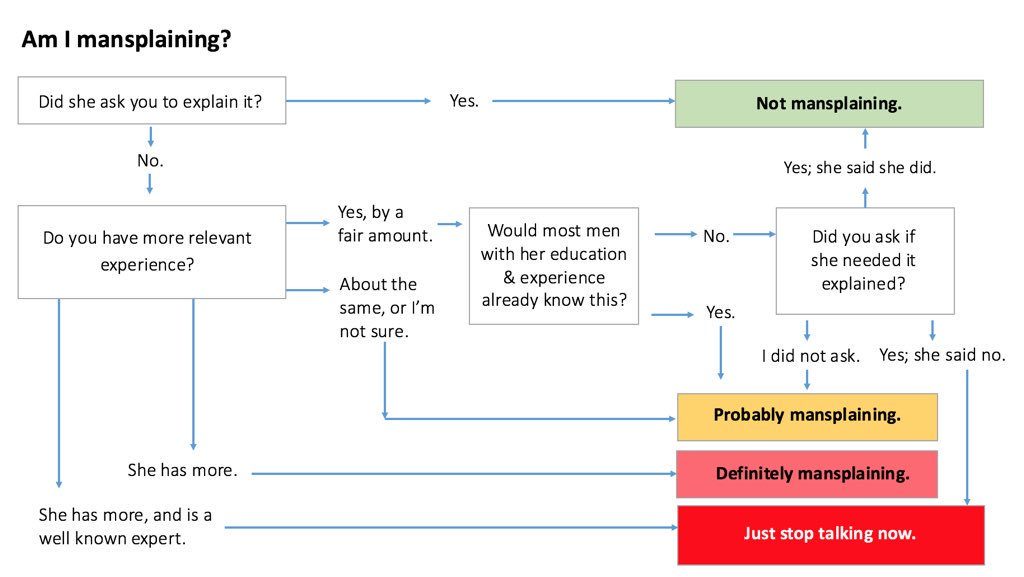I’m not sure whether the national security community is having a reckoning, a renaissance, or a come-to-jesus moment, but there is (finally) momentum for the substantive inclusion of women and the strategic advantage of their participation outside of the groups (WAND, WCAPS, WFPG, WIIS, WILPF) that have been advocating for it for years.
Those working to reduce the threat of nuclear weapons are leading the way in harnessing women’s strengths. Gender Champions in Nuclear Policy launched; Ploughshares Fund introduced its women’s initiative and publication “A New Vision: Gender. Justice. National Security”; New America published “The ‘Consensual Straightjacket’: Four decades of Women in Nuclear Security”; and the Carnegie Endowment for International Peace’s “Nukefest” boasted gender parity for their panelists.
This progress is, no doubt, an accomplishment in its own right. But both men and women in our community have room to grow. Lest we only make superficial advances, I’d like to introduce to the community a few neologisms and theories to keep in mind. Oh, and if you find that some of this is hard to take, or you are afraid of getting singed by my burning bra, know that you probably need it the most.
As with all good intellectual exercises, let’s start with a warm-up.
Manel (Man-panel)
A panel of “experts” that consists of only men—often older, white men. Symptoms of a manel include feeling like you are in a long, dark echo chamber, déjà vu, and sudden urge to look at your phone. Common defensive tropes include not being able to find qualified women, forgetting that women exist, and not wanting to hear those grating voices.
By now, we are well aware of the disadvantages of the manel, and groups like Carnegie and Ploughshares are getting pretty good at making sure their panelists aren’t just pale males from Yale. Before you give yourself a gold star, though, ask yourself these questions: Are your women panelists lily-white? Is it a rotation of the same five women at every event? If so, take heed and strive to do better. Utilize resources like SheSource, Twitter Lists, Women Also Know Stuff, and New America’s Mission Visible to make sure that your panel covers all your bases — not just of gender, but of perspectives and ideas too.
Imposter Syndrome
When a person persistently doubts their own abilities and accomplishments to the point that they are afraid of being accused of being a fraud. Common side effects include not showing up to meetings, breaking out in hives, and only applying to jobs where you surpass the qualifications.
Though both men and women experience impostor syndrome, it was first observed in highly successful female college students who were unable to internalize their competency.
In order to combat this insidious phenomenon, repeat Jessica’s daily affirmations every morning.
Bropropriating (Bro-appropriating), synonyms: Bro-opting (Bro-coopting), Hepeating (He-repeating)
When a man takes your idea and uses it as his own, often followed by Chad saying, “Great idea, Jeff!”
To stymie the effects of bropropriating, women could employ a tactic Obama’s women staffers called amplification: “When a woman made a key point, other women would repeat it, giving credit to its author. This forced the men in the room to recognize the contribution — and denied them the chance to claim the idea as their own.” For the sake of consistency, let’s call this She-peating.
Marticle (man-article)
Only recently discovered, the marticle is a published piece that quotes male experts exclusively.
Cousin to the manel, as Alexandra Bell and Kelsey Davenport explain, marticles can be found in many of your favorite news outlets, including The Atlantic, Bloomberg, CNN, Defense One, The Guardian, Newsweek, Politico, Reuters, Vice, and the Wall Street Journal.
Don’t be fooled if the author is a woman; men and women alike are known to spawn marticles.
If you are a man who frequently gets called by journalists for statements, next time, speak your piece, then pay it forward by suggesting a woman who has expertise, interesting research, or a unique perspective to lend to the journalist.
Manterrupting (man-interrupting, sense a theme?)
When a man interrupts a woman because he thinks he knows what she is going to say, that she is wrong, or that he deserves to say it first.
Manterruptions can be found on the stage at the MTV Video Music Awards, on the bench of the Supreme Court, in the Whole Foods checkout line, and during most congressional hearings. If you are unwilling to accept women’s lived experiences as proof that manterruptions exist, check out this study or this one.
The Good Men Project, a self-proclaimed glimpse of what enlightened masculinity might look like in the 21st century, suggests to “just sit there and listen”; to interrupt the interruptor by saying something like, “wait, I want to hear what she has to say,” AKA the No-Kanye Rule; and to make all meetings no-interruption meetings.
Mansplaining (man-explaining)
Coined by Rebecca Solnit, who is ironically still a recipient of mansplanations, mansplaining is “to explain something to a woman in a condescending way that assumes she has no knowledge about the topic,” says Merriam Webster.
If you are unsure if you are mansplaining, please consult this handy chart made by Kim Goodwin:
Mantoring (man-mentoring)
When men think the only contribution they have to gender equality is lending their expertise and status to women.
As men are increasingly trying to “do the right thing,” mantoring has made public appearances on NatSec Twitter and at events held in the name of gender equality.
To the well-intentioned, junior-to-mid-level man who offers his mantorship to women, I would say, “Much appreciated, but you’re missing the point.” Instead, ask yourself what perspective and knowledge this woman could bring to the table, utilize her skillset, and then give her credit for it. Including women in your work is not just the right thing to do, it’s the smart thing to do.
*Okay, sooo, I just made this one up. But it is definitely a thing.
Shine Theory
The theory that successful women are your greatest allies, not your competition.
Studies that show that women really need a little shine theory in their lives. When women are outnumbered by men in the workplace, they often become hypercritical of other women.
So, when your favorite lady in the office gets a promotion, comes up with a great idea, or gets a piece published in the New York Times, don’t trash her outfit or talk about how she is “really close” with the man-boss. Put away those claws and post on Twitter about what a badass she is.
The Pedestal Effect
When men receive disproportionate rewards for their work as feminist allies, according to seminal research by Dr. Tal Peretz. Ex. Showering men with praise when they say something like “diversity is key to success” and telling a father who is wearing a baby bjorn in the grocery store that he is “the best Dad ever.”
Male privilege can even seep into feminist and traditionally women-centered spaces, garnering men “gratuitous/unearned acclaim, attention, instant credibility, career help and mobility, and extra erotic/romantic attraction.”
Peretz argues that “if you believe in gender equality, it is not hard to understand why it is problematic to place one gender on a pedestal for doing the bare minimum.” So, the next time a man makes a small effort to improve gender equality, let’s collectively recognize his work but not forget that women have been saying the same thing he said for decades.
Implicit Bias/Implicit Social Cognition
“Thoughts and feelings outside of conscious awareness and control,” according to Project Implicit.
All jokes aside, everyone has implicit bias and it is the root cause of most of these terms and theories. Implicit bias is dangerous because a lot of us don’t know we have it, we aren’t aware of how it manifests, and we are unwilling to accept the harsh reality that we will all be a victim of its perniciousness.
I don’t think men are intentionally Mansplaining or that women recognize that they are putting men on a pedestal for pushing a stroller—they are hindered by their implicit biases. Take these tests to find out how you, too, are affected by implicit associations.
How you handle your missteps is as unique as your fingerprint and the most important part. My m.o. is to be self-deprecating, replay the conversations on my walk home, and then try to do better the next time. What is yours?
Corey Greer is the Communications Manager at Women’s Action for New Directions. She holds an MA in International Human Rights from the Josef Korbel School of International Studies and has previously worked with the United Nations Development Programme and the National Democratic Institute for International Affairs.






















